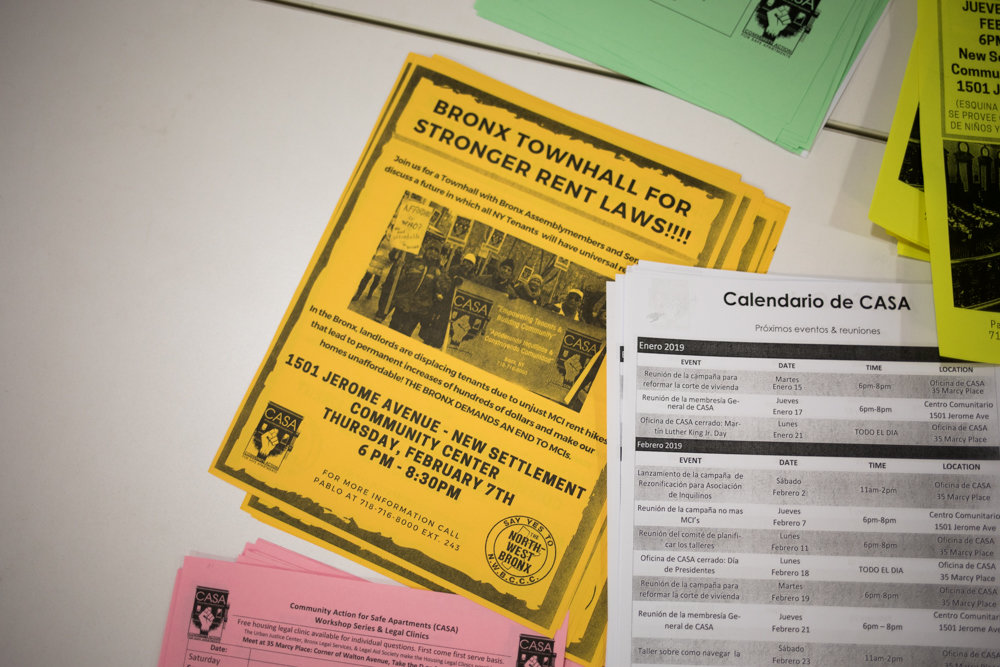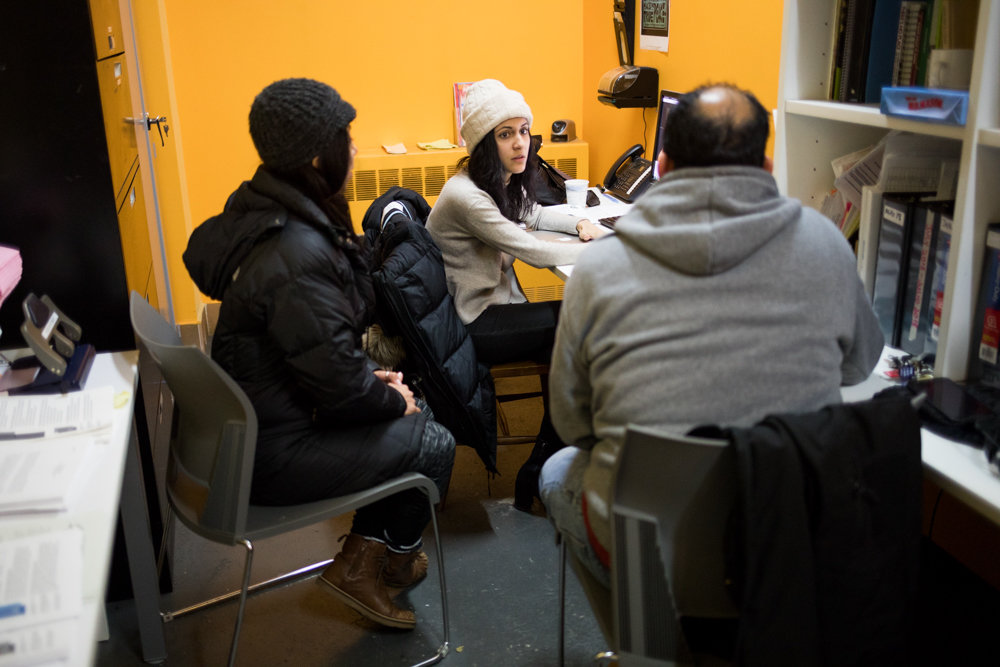Boro prez: Preferential rent no longer preferred in Bronx
A pernicious loophole plaguing struggling renters has the Bronx borough president quite worried.
Ruben Diaz Jr., feels there’s a major crisis when it comes to what’s known as preferential rent — a practice that subjects tenants to the potential of massive rent rises, or at least living in bad conditions simply because of the fear their preferential rent might go away.
It’s a loophole that allows landlords to dramatically increase rents of tenants paying preferential rent and, according to Diaz, puts some residents in a terrible place.
Preferential rents are rents charged below the amount a landlord has registered with the state’s Homes and Community Renewal agency, or HCR, and regulated by the city’s Rent Guidelines Board — charged with establishing rent adjustments for the roughly 1 million dwelling units subject to the city’s rent stabilization law.
Unlike typical increases in rent-stabilized units — usually capped at around 2 percent — a landlord charging preferential rent could jump to his registered rent rate, no matter how high the increase rate is. Were landlords to raise preferential rents to legal rents en masse, it could push hundreds of thousands of residents to the brink of eviction and displacement, Diaz’s office said.
But even if rents don’t go up, there are some tenants paying preferential rent living in less-than-ideal conditions, afraid to speak up out of fear their landlord could retaliate and dramatically raise the rent. That’s something Assemblyman Jeffrey Dinowitz pointed out in an opinion piece published in The Riverdale Press in October 2017, claiming many living with preferential rent have lost their basic rights as tenants.
“I have constituents with preferential rents who have suffered with leaks, mold, broken appliances and many other maintenance problems because they are reluctant to file a formal complaint,” Dinowitz wrote at the time. “I have other constituents who are hesitant to apply for a rent freeze because their rent would only be frozen at the legal regulated rent, and they are afraid of how their landlord might react.”
In the area of the borough that includes neighborhoods like Marble Hill, Kingsbridge and Riverdale, more than 3,400 rent-stabilized units exist where landlords have granted so-called preferential rents, Diaz spokesman John DeSio said. The majority of those — 2,640 — were in places like Kingsbridge, Kingsbridge Heights, parts of Spuyten Duyvil and Marble Hill, while areas of Riverdale, North Riverdale and Fieldston housed an additional 763.
“New York state must reform its rent laws,” Diaz said, in a release, by strengthening tenant protections and closing the preferential rent loophole. He supports legislation like that introduced by Brooklyn Assemblyman Steven Cymbrowitz this week that would cap rental increases in rent stabilized units, even if starting rent is far below what’s legally allowed.
Yet, many landlords offering preferential rent aren’t out to get their tenants, Diaz said, and deserve protection, too. Cymbrowitz’s bill — co-sponsored by Dinowitz — would allow a landlord to raise rents to the maximum so long as it’s for a new tenant, and not an existing one. Diaz also proposes giving landlords a property tax break for the difference between preferential rent and legal registered rent in a given rent-stabilized apartment.
“We must recognize that some landlords could be described as small businesses, and are also worthy of our protections,” Diaz wrote in his report.
More than 260,000 apartments across the five boroughs currently have preferential rent as of HCR’s latest registration data from 2017, according to Diaz’s report, up from around 258,000 the previous year. That represents 7 percent of the city’s residential dwellings, and 29 percent of all rent-stabilized units.
Furthermore, the report estimates a new tax credit for landlords would cost roughly $93.5 million a year to implement — but would save billions in potential costs created by displacement, like building new affordable units or housing families in shelters.
Landlords may offer preferential rents for a variety of reasons, but often it’s because they’re having trouble finding a tenant able and willing to pay the maximum legal regulated rent for an apartment in a particular neighborhood, said Carolyn Norton, director of Bronx Legal Services’ tenant rights coalition.
Preferential rent “often is offered as an incentive for tenants to move in to an apartment because it’s more affordable,” Norton said. “The problem with that is tenants don’t realize there’s nothing protecting them” from the possibility the landlord may “revoke the preferential rent and charge what could be the much higher, legal regulated rent — which is often tantamount to an eviction, essentially. Because if there’s a big discrepancy, the tenant can’t afford it, and they’re not going to be able to stay in their home.”
It’s one thing when a tenant knows what they’re getting into when it comes to preferential rent. It’s different when they pick up an apartment and don’t have a clue, Norton added, that their special rent can be revoked at the end of their lease.
That’s actually one of the major problems with preferential rent, as Diaz sees it — tenants unknowingly entering into preferential rent leases, causing them to vacate their homes when rent is raised to the legal registered rate.
More than half of the city’s renter households were rent-burdened — paying at least 30 percent of gross household income for rent and monthly utility costs — in 2017, Diaz said. This can result in chaotic tenant instability, or even eviction, if an unforeseen job loss or health problem springs up — meaning stakes are especially high when many residents already are “teetering on the edge of eviction and displacement” and probably couldn’t afford a sudden spike.
“Eliminating the preferential rent loophole, in conjunction with new tax breaks for landlords will help our city prevent displacement and keep our neighborhoods intact,” Diaz said.















